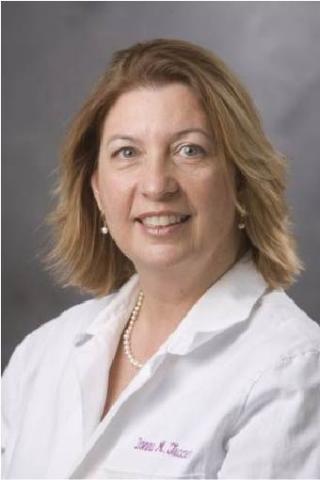Medicine is an amazing profession. Every day I use my mind to its fullest. Although I have been practicing my craft for almost 30 years now, it seems like not a day goes by that I don’t see something new. Sometimes I learn a recently discovered fact about a disease process. Other times a research study presents an improved approach to treating that disease in our patients. I appreciate this growth in myself and in my profession.
From another perspective, our care of patients goes far beyond the medical knowledge we bring to a given encounter. We must meet our patients where they are: physically, mentally and spiritually. We must also consider the many factors outside the exam room which are impacting health, such as the safety of their environment, degree of social support and financial means. The visit is further complicated by documentation guidelines in the electronic health record that don’t necessarily provide improved care to the patient seated in front of us.
Yes, medicine is extremely rewarding — and at times it can be exhausting.
Caring for ourselves and one another
I’m from the “old school” of medical training. We never spoke of “work-life balance” or "professional “resilience” and the concept of “professional burn out” (an entity described as emotional exhaustion, depersonalization and low sense of personal accomplishment) was in its infancy. Perhaps it is no surprise then that the annual Medscape Physician Lifestyle Report noted that physicians between the ages of 46 and 55 reported the highest burnout rate (32 percent).
As physicians, we value compassion. Yet within medicine, we must balance that empathy with appropriate emotional boundaries between ourselves, our patients and their families. This can be difficult given that we share in our patient’s struggles, successes and failures, and often in their profound suffering.
Given the often high volume of daily patient care, physicians must conclude one patient encounter and move on fresh to the next, often without time in between to process the emotions which have been evoked. Responses can be suppressed, only to present themselves at a later time, or not at all.
The medical profession in general, and medical and resident training programs in particular, have recognized the importance of developing resiliency skills and providing resiliency training. From a business perspective the training might be to optimize workforce retention, clinical outcomes and patient safety and satisfaction, but from a personal perspective it’s about caring for ourselves and one another.
Being an advocate for myself
Several years ago a number of changes occurred within our division. We became the inaugural group for the launch of a new electronic health record — at the same time that a new curriculum was being initiated. There weren't enough hours in the day to evolve with a new skill set and adapt to the increased work demands.
Almost overnight, work had insinuated itself into my early mornings, late nights and weekends. The more I worked, the more difficult getting through the work became. It was then I realized quite clearly that I had no work-life balance. My work had become my life.
Gradually I started finding my way back. First, I delineated hard and fast times when the computer would be off. Second, with the help of a friend and confidant, I was able to reflect on what was important in my life and brought me joy. She reminded me to be as good an advocate for myself as I am for my patients.
Finally, this person gave me a nudge to try something new that incorporated those things — and so I joined the church choir. Singing in a choir might seem like a relatively small and insignificant act, but considering I can’t read music and don’t sing like an angel, it’s really stepping out of my comfort zone!
Singing requires that I be 100 percent present in the moment. I have to control my breathing, time my phrasing and adhere to the dynamics the composer intended. It is a full mind-body connection. Finally, I must connect with the song to really give it life. This week was exceptionally powerful as I heard for the first time "I Chose Love" written by Mark Miller in remembrance of the tragic shooting at Emmanuel AME church in Charleston, S.C., in 2015. The music and words give pause for reflection.
Music as therapy
Almost two centuries ago Victor Hugo said, “Music expresses that which cannot be put into words and that which cannot remain silent.”
We know that music can be used as therapy. For healthy individuals, the listening or creation of music can lead to stress reduction. For elderly persons, it can increase or maintain their level of physical, mental and social/emotional functioning. Within the educational realm, music can help children with special needs relate to their work and in healthy children improve performance in nonmusical areas. There is an entire discipline of music therapy with their own professional organization http://www.musictherapy.org/
As for me, I plan to continue in choir, raising a joyful noise — even if it means singing a little off key — because it’s as true today as it was in the 1500s:
“He who sings scares away his woes.” ― Miguel de Cervantes Saavedra
To learn more about resilience training in medicine, read "Physician Resilience and Burnout: Can You Make the Switch?"
Donna Tuccero is associate program director of the Duke Family Medicine Residency Program. Email donna.tuccero@dm.duke.edu with questions.
Editor’s note: A member of the Duke Family Medicine Residency Program leadership team guest blogs every month. Blogs represent the opinion of the author, not the Duke Family Medicine Residency Program, the Department of Community and Family Medicine or Duke University.
